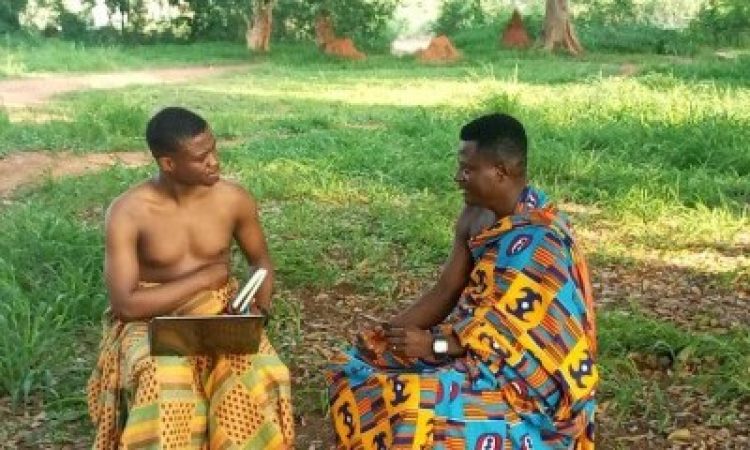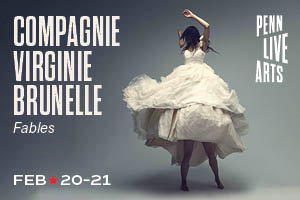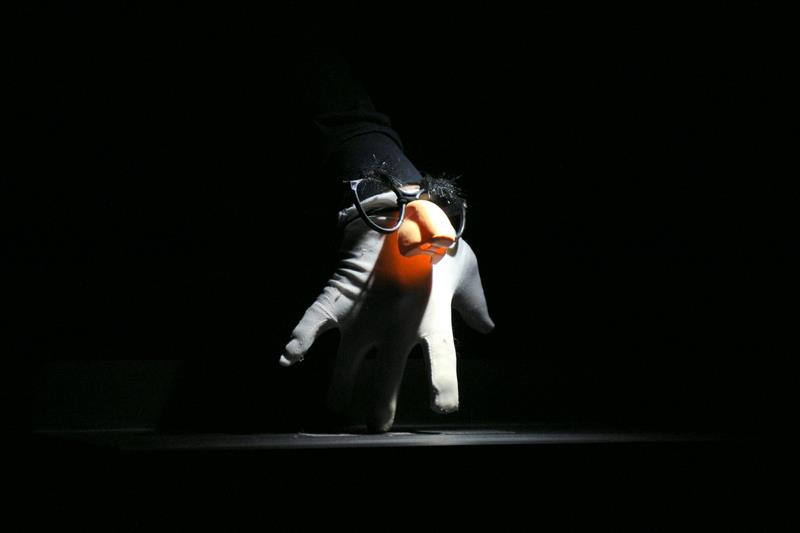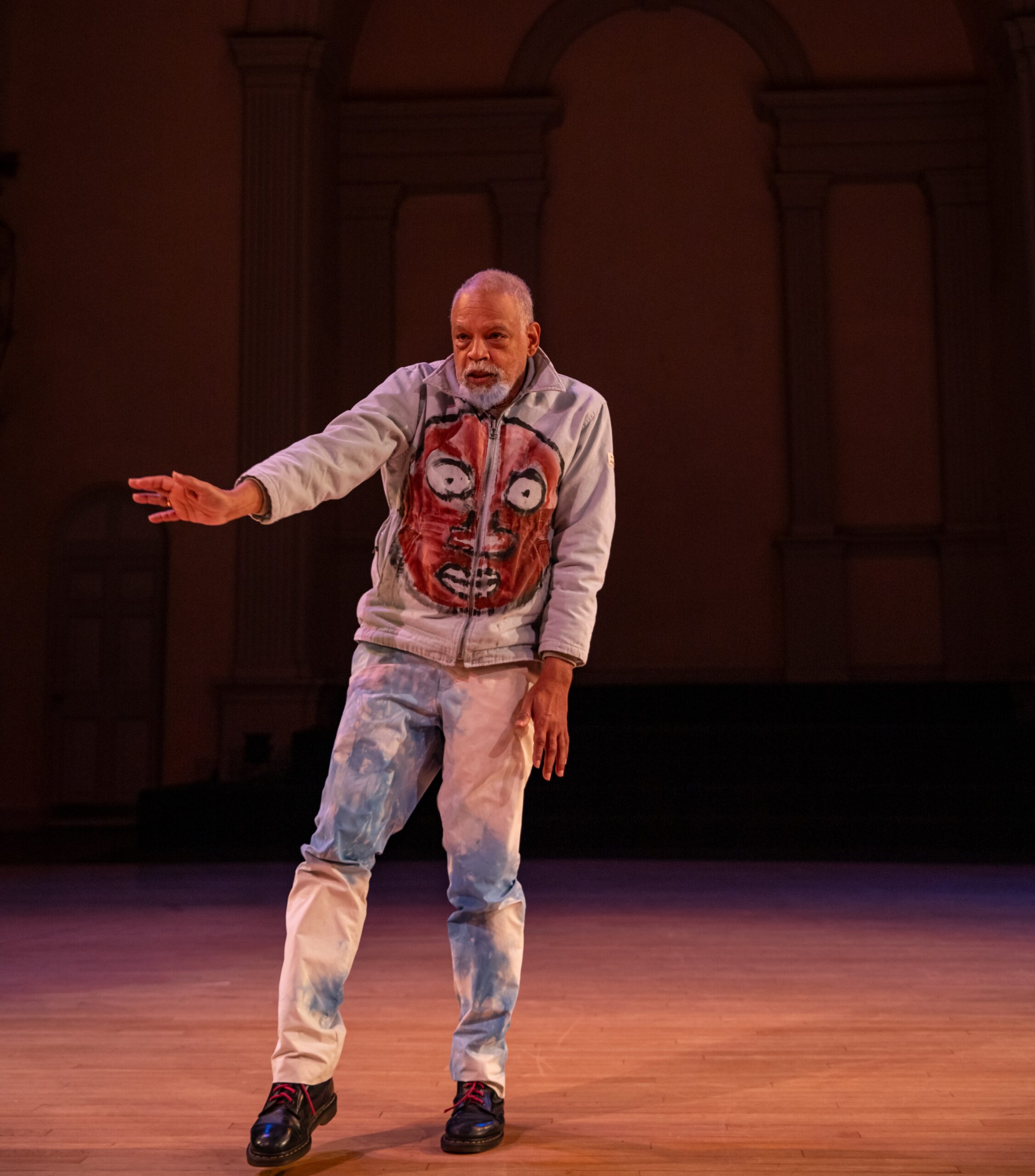As part of the Decolonizing Dance Writing Series, I interviewed Emmanuel Cudjoe, a Ghanaian dance researcher and scholar. A week later, I watched on ‘Zoom’ as he lectured about Akan culture and his views on decentering dance education away from Eurocentricity. In this sceenplay, Tearing the Snail Shells, we witness a fictitious encounter between a Ghanaian man and a Filipinx as main characters to the film.
CAST OF CHARACTERS:
EMMANUEL, a Ghanaian dancer, and researcher dedicated to the propagation and safeguarding of traditional and neo-traditional dances from Ghana/Africa. He is currently a PhD Candidate and Graduate Teaching Assistant at the Boyer College of Music and Dance – Temple University, holding a BFA degree in theatre studies with dance from the University of Ghana and possess an MA in African Studies from the University of Ghana, and another MA in Dance Knowledge, Practice and Heritage from the Choreomundus Consortium in Europe (Norway, France, Hungary, and United Kingdom).
ANI, a Filipinx multidisciplinary movement-based storyteller, utilizing dance, film, and literature as vessels to decolonize whiteness within the Filipino/a/x post-colonial culture. Gavino holds an MFA in Dance from Hollins University where she conducted research on the indigenous people, the Ati, aiming to trace the connection between the Southeast Asian to African diaspora.
RIVER DEITY, spiritual creature, perhaps an ancestor, a guide between humans and gods
DISTORTED PROF. MANBOY, an anthropology professor of European descent
ANI VOICE-OVER
As part of the “Decolonizing Dance writing” series, I was assigned to interview Temple University PHD candidate, Emmauel Cudjoe on his journey as dance educator and scholar. As an artist, researcher, educator, and a migrant from the islands of the Philippines, I found uncanny similarities in what motivates us to dance. During our conversation, we laughed and raged about the same colonial narratives our people continue to uphold— to be in close proximity to our colonizers’ ways. Throughout our conversation, we questioned, “Why can’t we speak our own native tongue?” Bakit kailangan pang mag Ingles upang mapatunayan na tayo ay matalino? Doesn’t our ancestors’ language hold value? Wala bang halaga ang salita ng ating mga ninuno? Decapitating ourselves from our own roots long beyond our oppressors’ watering of poisons, choosing to speak languages of ballet to postmodernism, Cudjoe expressed his frustration of being forced-fed whiteness within Ghana’s dance academia consciously, and what led him to travel elsewhere to learn Africanist epistemologies (a word often used in academia that etymologically is rooted in Western thought). Thus, it makes me wonder, how complex is this web of systems intrinsically designed for us to be tangled in? Like lost spiders, how long will it take for us to navigate in and out to be deemed worthy of telling our own stories? How many academic degrees does one person of color have to attain to be recognized as a valid source–that their embodied experience and ancestral stories hold truth? How long do we have to compromise by using the white man’s simplified study of our experiences such as anthropology?
ext. in front of the Temple student center- morning-establishing
(ANI GAVINO waits for EMMANUEL CUDJOE in front of Temple University’s student center. They have never met before, but ANI is excited. EMMANUEL arrives, they hug immediately. EMMANUEL suggests they find a comfortable location inside the student center.)
DISSOLVE TO
int. library.
(They find a table with two seats. ANI takes out her audio recorder.)
ANI
I realize that we have never met in person. This must feel a bit awkward, yea? I’m Ani, it’s really nice to meet you. I’m originally from the Philippines. I came here initially to study dance in New York. How about you? What is your journey to the United States?
EMMANUEL
Well, I’m from Ghana. I have twelve siblings on my father’s side. On my mother’s side, I have six. I’m the only boy. In Ghana, I am actually a prince yea?
(chuckles)
I grew up in a strong traditional family, from the Akan people. My father was a chief. I went to university for dance, theater, and music. But in Ghana, I wasn’t satisfied with what I was learning. I believe that I was learning more about Western people than myself. So, that took me to further my education in African Studies in Ghana and later in Europe.
ANI
Oh wow! What western hegemonic narratives were you learning while in school? And can you paint a picture as to why this narrative was being taught in Ghana?
EMMANUEL
Ghana was colonized by the British for close to 100 years. Thus, our curriculum in Ghana is predominantly foreign. We had to learn ballet technique, Greek mythology, literature, philosophy and all those things. Unfortunately, we are not taught to uphold our culture. We are trained to speak like a British; move like a British. But then I realize, my identity is rooted in my culture. So, I immersed myself in African studies to know more about myself. I went to Europe to get another master’s degree, because the knowledge I need at that time was not found in Ghana’s academic institutions.
ANI
Oh, that’s so sad. So, after your master’s degree in Europe, why the United States?
EMMANUEL
I met Dr. Sherill Dodds in France who invited me to come to Temple University. In order for me to teach further in Ghana, we are required to have a PHD.
ANI
A requirement? Are you serious?
EMMANUEL
Academia is a colonized institution with a colonized mentality so that is what happens. So, Dr. Dodd’s invite was a great option for my goal which is to decolonize Ghana’s dance education. I want to help safeguard and revive the Ghanaian/African culture that is dying out, record our traditional dances and bring these to national stages, creating Ghanaian pride.
ANI
It’s a thing in the US to coin dances from Africa as African Dance…Yet, African Dance is so vast. How do you feel when many distinct cultures, languages and dances are categorized as one?
EMMANUEL
Oh yes, I do have an issue with this. It is not fair to put one name tag for all dances from Africa. To put this in perspective, there is no one European dance, Asian dance, or South American dance. Yet, we are grouped together as one African dance when Africa has over fifty-five countries.
ANI
Exactly! Africa is arguably the second biggest continent
EMMANUEL
Yes, and Ghana is just a fraction of this continent….
CUT TO
Ext. Ghana. Chief Village in the Asante village
(ANI and EMMANUEL teleport to EMMANUEL’S hometown. They are greeted by the rhythms of the drums which called the community to gather in a celebration. An array of colors and prints were displayed on the textiles. Kente, which is a brightly colored woven cloth adorns the royal family in a toga-like fashion as gold and brass ornaments their bodies. The air oozes with artistic splendor. They witness two Ghanaian women perform a traditional Asante royal dance.)
EMMANUEL
This dance called Kete is often performed both indoors and outdoors to entertain royalty and visitors at the chief palace. It is a royal dance born by the Asante monarchy. I’m currently tracing and researching the Kete dance for my Ph.D. dissertation.
ANI
Ahhhh…Their costumes, ornaments, and artifacts are so beautiful.
EMMANUEL
These artifacts and costumes are not just for beautification. These are symbolic of many beliefs by the Asante people.
ANI
Aside from royal Dances, what else can you tell me about Asante dances?
EMMANUEL
We also have war dances. During the olden times, these war dances were only available to men; only men went to war while the women took an important role of leading the village. The women took another role that was significantly as important as carrying firearms. The woman’s weaponry was the mortar and pestle. So…. Have you had fufu?
ANI
Oh my god, I love fufu!
EMMANUEL
Yes, so the women would pound the empty mortal used for fufu with their pestle, thrusting all that power into the dough. Through this, they were spiritually being one with the men who were fighting at war.
ANI
Huh…I resonate with this. Your culture, like ours, spiritually believes that the material world does not fully explain the totality of human expression and experiences….
CUT TO ANI FALLING INTO A RABBIT HOLE
EXT. deep in a cosmic forest between the Pra and Ofin rivers
RIVER DEITY
An old man was in the world before a chief was born.
ANI
Excuse me? I missed that.can you kindly repeat?
RIVER DEITY
An old man was in the world before a chief was born. It is an ancient Akan proverb.
ANI
Oh…um so, where am I?
RIVER DEITY
You are in a region between Pra and Ofin, in your future world, you would call this Adansie and Amansie. You have been transported to the fifteenth century where there is turmoil. The British want gold…and kola from the kola nuts, which eventually will become a flavoring agent in America’s biggest contribution to the world, which is cola sodas. But do not worry, because here, you are safe. You are embraced by the forest and the Asante cosmic goddesses and gods.
ANI
Thank you. But… who are you?
RIVER DEITY
I am a river deity, your guide to the spirit world. Once, I was a queen mother when I lived in your realm. I played a big part in the Asante Social organization, family, lineage and estate. At times I evoke the river deity, Asuo Abena. I often perform cleansing rituals for those who have tendencies to bring their evil to the world.
(Immediately, Ani grabs her hand and places the back of her hand on her forehead, performing a “mano po” gesture that is traditionally done by Filipinos to elders as a sign of respect.)
EMMANUEL
I see you two have met. ANI, welcome to our rivers. These rivers lead us, the Asante people, to our paths. You see, we believe that we were created from the beginning of time. We are this river.
(The vibrations of the earth make a sound. It is rhythmic. The river deity sings and Ani sways along to her melody)
RIVER DEITY
These sounds, these vibrations cannot be coded in the writing of a pen. It can however live in our bodies.
EMMANUEL
Our bodies are like a storage of information, and it is our duty to archive our stories, may this be through inscription of the pen or through our dances. We must investigate the history of the people in order to understand its future.
ANI
RIVER DEITY
Yes…An old man was in the world before a chief was born.
ANI
I like this realm where the old man is at peace. What sort of chiefs came into this world?
EMMANUEL
Oh many! Hmm..let me see… There is this creature named ABSTRACTION and another named the DISTORTED PROF. MANBOY. They often disguise themselves as heroes, saviors, and protectors. However, they are invaders from the planet Distortia. In planet Distortia, everything is sterilized. Art is removed from storytelling, diminishing a dance that tells a story as unintelligent. In Distortia, dance is taught by those who systematically have access to time and money for academic study instead of being taught by its people who actually carry lived histories of place and culture. Dances from African, Asian and Pacific Islands are minimized into a coined term, world dance. Polyrhythms from specific cultures are confused as one. People revolt against the empire of ballet to create a new superpower empire called postmodernism. The likes of DISTORTED PROF. MANBOY will be fragile to possibilities of losing power, that history will be told by those indigenous to the story, resulting in the MANBOY race to lose their validity as an authority of truths and gatekeepers of knowledge.
ANI
Ah yes, where I am from, we dance in the name of “Abstraction” a legacy imposed on us by the postmodernist empire. I am taught that I cannot be a narrator to my own story. This method is said to be too confessional. Thus, I have to source outside of myself. In my world which crosses between professional and academia, we dance about overarching themes that supposedly, everyone can relate to.
EMMANUEL
This is not true in the old realm where the old man sits in peace. In this river, stories run through our blood. We dance our lived experience, using Afrocentricity as a lens to this deep dive.
RIVER DEITY
Sadly, so much of Ani’s world will be the future of these waters. It has already begun. No longer will we find ourselves in our rivers but in the writings of foreign invaders and chroniclers. Our dances will be gone into the ethos of Distortia.
EMMANUEL
I have been diving into these waters, trying to find the dance called Togo-Achan. But it is hard to find. Togo-Achan is said to be a women’s dance. I am inspired to swim in these waters like my many sisters and grandmothers.
RIVER DEITY
Ah yes the Togo-Achan. This song and dance is about everything; our marriage, our celebrations, about what issues are being confronted in our community.
ANI
Dance is storytelling.
EMMANUEL
Yes, and come. Take my hand and look into the waters
(ANI takes EMMANUEL’s hand. They look into their reflection which slowly dissipates. Images of a tribe emerge, painting the waters with a story.)
DISSOLVE TO
Ext. NUATJA. 1600
(The Ewe people, now known as modern day Ghanaians, were displaced westward during the expansion of Yoruba. This displacement began with TOGBE AGORKOLI who ruled with an iron first causing many of the Ewe people to seek refuge elsewhere. One day, the Ewe women sat down.)
EWE WOMEN
We are tired of being servants, it is time that we be on our own. Let us free ourselves. Let us splash water on these walls every single day, until the walls soften into clay.
(They splashed water until the walls became soft. Collectively, the Ewe people broke down the clay walls. The women then danced backwards. Their footprints traced to where they came from, tricking the Agorkoli people. A mythological bird guided the Ewe to their freedom, to where they now reside in Ghana.)
EMMANUEL
This is the story of my people, embedded in the dance called the Agbadza. We dance backwards like the Ewe, and we flap our wings like the bird. Come dance the Agbadza with me.
(CUDJOE teaches ANI the dance.)
CUT TO
Int. classroom. present day- planet Distortia
(ANI and EMMANUEL teleport to planet Distortia. This realm is devoid of all color and sound. No longer do we hear the vibrations of the earth and the polyrhythms of nature. We only hear a deafening silence, not necessarily one that is centering, but one that is muting.)
DISTORTED PROF. MANBOY
Today we are studying anthropology, which is the scientific study of cultures and humanity.
ANI
I have always wanted to be an anthropologist.
EMMANUEL
Same here. What made you change your mind?
ANI
I felt discouraged. In my research on the pre-colonial Philippines, it was hard to find books written by my people. Most anthropological research was written through a lens of our colonizers who wrote my people as species deemed inferior to their “civilized” selves…. referred to as savages.
EMMANUEL
This too was my problem. That is why in my study, in my own writing, I make sure I cite most African scholars, those who come from an Afrocentric lens. In my teaching, I center the study of my culture from our lived experience. I bring in dances that celebrate community, rituals, spirituality–written using my voice.
DISTORTED PROF. MANBOY
Ahem! Ahem! I couldn’t help but listen in. Pardon me while I forcefully interrupt. But I have a question for you, why would you insist on a new method of epistemology? This thing you call Afrocentricity…which is quite interesting by the way…but creates interesting paradigms that seem unnecessary when there has already been a robust study recorded by brilliant philosophers such as the famous Aristotle. Why not just defend such claims with widely proven theories?
(Distorted Prof. Manboy continues to drone on, pleased with his lexicon of western academic jargon, completely unaware that others are in the room as the deafening silence pierces ANI’s ears. Her heart rate speeds up, unable to respond to her teacher’s question. She looks at EMMANUEL to see if he is ok. She is triggered by the centering of Aristotle. How is space so quickly encroached upon by Eurocentricity- from lands, histories, conversations, and now, her mind. Isn’t Aristotle the grandfather of theories that upheld social and racial hierarchies, causing the creation of planet Distortia? Didn’t Aristotle lay down the groundwork for the justification of eugenics.)
EMMANUEL
Ani, are you ok? Are you ok, Ani?
ANI
I am upset! How is human consciousness always defined and sourced from one Western framework? What about us?
EMMANUEL
Tentonte tentonte yerenon nsa no, yerefa adwen! It’s an Akan proverb which connotes that gradually we shall make changes to the unchangeable or issues glaring at our face.
(As soon as Emmanuel spoke, a gang of children ran and surrounded him, aggressively putting a necklace of snail shells around his neck.)
ANI
Hey, stop it!!! Why are they doing this???? Leave Emmanuel alone!
EMMANUEL
I spoke the native tongue, and so to remind me that speaking my language makes me filthy, they put a necklace of snails around my neck.
ANI
But your language is beautiful. Damn! This is absolutely horrible! This beats the twenty centavo fine I had to pay every time I spoke my indigenous language in Catholic school in the Philippines.
EMMANUEL
Do not worry, we will find ourselves out of here.
(EMMANUEL tears off his snail shells and jumps with Ani into another rabbit hole.)
CUT TO REALITY
INT. library.
ANI
How do we find ourselves out of here? I feel trapped. Anxious. Erased. Where can we find ourselves in this library? The river is gone, and we only have the writings of other people.
EMMANUEL
Your people’s writings are within you, it is within me. Take my hand and listen very hard. The rhythm is within you and the stories are deeply embedded within our souls. Start writing.
(They both started moving, swaying, undulating, remembering, and honoring, dancing stories through their dance…)
FADE TO BLACK
NOTES FROM THE SCREENPLAY WRITER:
It was a pleasure working with Emmanuel on this project. During our first in-person interaction, we realized the many commonalities we have as children from a colonized history. In our respective countries, the discourse is insular and is often strongly unified in upholding centuries of Eurocentricity. Colonized mindsets continue to mold our educational system, continually erasing our indigeneity. Like Emmanuel, I too migrated abroad to source new information about myself.
In exploring a decolonial method to dance writing, I first had to reflect on the ways academic writing erases accessibility for many who find this writing as pretentious, for those whose first language isn’t English, for those who prefer other modes of media as a source of information, for our young readers with shorter reading span, and for many other reasons. Thus, I re-imagined a story which is based on an interview and a digital public presentation by cultural scholar Emmanuel Cudjoe. Rethinking my ThINKingDANCE article, Unpacking the buzzword, Decolonization, is it possible to decolonize dance writing without resorting to master’s tools? The answer seems more complex than a complete deviation from Eurocentricity that is deeply embedded in modernism–that would be pretentious of me to say I have done that. Yet, I can attempt to do so by first, asking necessary questions. Does scholarship need to be contained in academic writing and language? Pushing back on colonial practices of gatekeeping through writing, can I archive Emmanuel’s story through a more accessible mode? He did after all say, we should find many ways to archive our stories….
Interview Citation:
Gavino, Annielille “ANI” Gonzales. “Interviewing Emmanuel Cudjoe.” 12 Nov. 2021.
Presentation Citation:
“Artist Workshop with Emmanuel Cudjoe.” Decolonize Dance Writing series. 20 Nov. 2021, virtual zoom.
WORKS CITED
“Akan People.” Wikipedia, Wikimedia Foundation, 10 Nov. 2021, https://en.wikipedia.org/wiki/Akan_people.
“Asante.” Encyclopædia Britannica, Encyclopædia Britannica, Inc., https://www.britannica.com/topic/Asante.
Akyeampong, Emmanuel, and Pashington Obeng. “Spirituality, Gender, and Power in Asante History.” The International Journal of African Historical Studies, vol. 28, no. 3, Boston University African Studies Center, 1995, pp. 481–508, https://doi.org/10.2307/221171.
Cudjoe, Emmanuel. “Pdf.” Thinking Dance, 2021.
Cudjoe, Emmanuel. 2015. “The Contexts and Meaning in Asante Dance Performance: The Case of Kete.” Dissertation. University of Ghana
Districts of the Ashanti Region, Ghana. West African Journal of Applied Ecology. 26. 108-133. Dickson, K. B. “Trade Patterns in Ghana at the Beginning of the Eighteenth Century.” Geographical Review, vol. 56, no. 3, [American Geographical Society, Wiley], 1966, pp. 417–31, https://doi.org/10.2307/212465.
Dr. Courtnay Micots. Created by Beth Harris and Steven Zucker. “Kente Cloth (Asante and Ewe Peoples) (Article).” Khan Academy, Khan Academy, https://www.khanacademy.org/humanities/art-africa/west-africa/ghana/a/kente-cloth.
Fritsche, Johannes. “Aristotle’s Biological Justification of Slavery in Politics I” Rhizomata, vol. 7, no. 1, 2019, pp. 63-96. https://doi.org/10.1515/rhiz-2019-0003
Garms, R & Badu, Kingsley & Owusu-Dabo, Ellis & Baffour-Awuah, Sandra & Adjei, O & Debrah, Alexander & Nagel, M & Biritwum, Nana-Kwadwo & Gankpala, Lincoln & Post, R & Kruppa, Thomas. (2015). Assessments of the transmission of Onchocerca volvulus by Simulium sanctipauli in the Upper Denkyira District, Ghana, and the intermittent disappearance of the vector. Parasitology research. 114. 10.1007/s00436-014-4287-9.
“History of the Ashanti Empire , (Ghana Africa).” YouTube, YouTube, 20 Aug. 2018, https://www.youtube.com/watch?v=esMSfUMzDpA.
“Kete Dance Beautifully Performed by Early Bird International School.” YouTube, YouTube, 7 Feb. 2020, https://www.youtube.com/watch?app=desktop&v=L_P-5_DEgkI.
Mkabela, Queeneth. “Using the Afrocentric Method in Researching Indigenous African Culture.” NSUWorks, https://nsuworks.nova.edu/tqr/vol10/iss1/10/.
Obeng, Pashington, and Obeng, J. Pashington. Asante Catholicism : religious and cultural reproduction among the Akan of Ghana. Belgium, E.J. Brill, 1996.
Tay, Collins & Dorleku, Michael & Koranteng, Samuel. (2018). Hydrochemical Evolution of Ground and Surface Water within the Amansie and Adansi
“The Power of Sankofa: Know History.” Carter G. Woodson Center, 20 Nov. 2017, https://www.berea.edu/cgwc/the-power-of-sankofa/.
“Togbe Agorkoli.” Wikipedia, Wikimedia Foundation, 22 Nov. 2021, https://en.wikipedia.org/wiki/Togbe_Agorkoli.
Wilson, Louis E. “The ‘Bloodless Conquest’ in Southeastern Ghana: The Huza and Territorial Expansion of the Krobo in the 19th Century.” The International Journal of African Historical Studies, vol. 23, no. 2, Boston University African Studies Center, 1990, pp. 269–97, https://doi.org/10.2307/219338.






